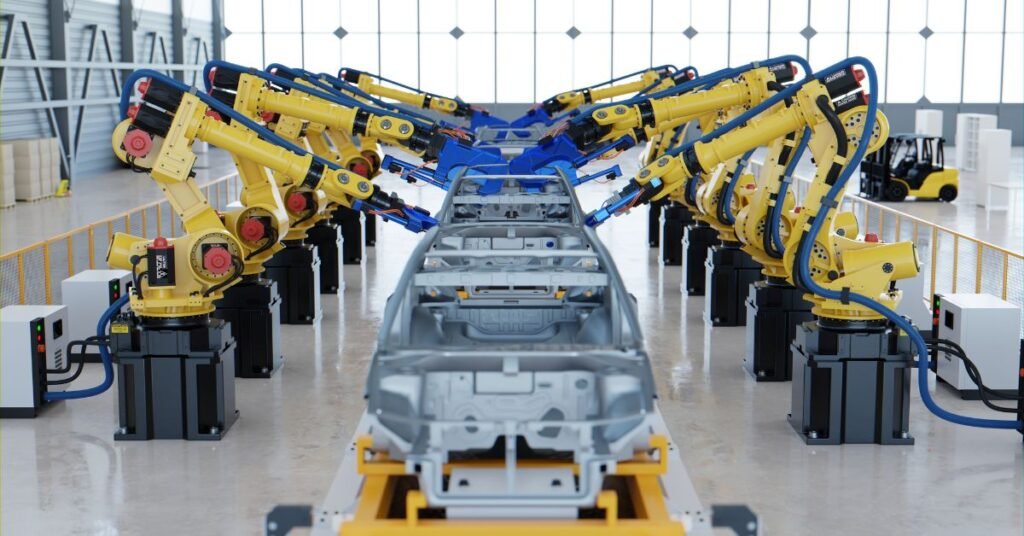Today, businesses are increasingly challenged to conserve energy efficiency, but within only a limited capacity. On the one hand, rising energy prices, environmental regulations, and the drive for sustainability put pressure on companies to reduce energy consumption and performance optimization. To this effect, ISO 50001:2018 has evolved as an international standard and thus become a precious tool for the entire industrial sector. ISO 50001:2018 brings along the possibility of organizations improving energy efficiency and cost savings at the same time while improving environmental performance.
We will discuss practical case studies from different industries that have been able to adapt to ISO 50001:2018, which they follow since this framework greatly improves their operations and helps them achieve a good future.
Case Study 1: Manufacturing Industry
ISO 50001:2018 will greatly benefit the manufacturing industry, which consumes a lot of energy. An international electronics manufacturing company applied the ISO 50001:2018 EnMS Lead Auditor Training Course to establish internal capabilities to conduct audits, which identified many inefficiencies in its entire production operations. The organization was subsequently able to address those inefficiencies and consequently saved 12% of its energy consumption within the initial year of the implementation.
The company also installed a real-time energy monitoring system. It made the staff more conscious about saving energy and challenged managers to make the right decisions based on available data. To ensure that optimized machine performance was maximized, minute detail improvements continued, coupled with regular audits aimed at minimizing waste and amplifying general energy efficiency. And the proof of investment lies in drastically reduced energy costs.
Case Study 2: Food and Beverage Industry
A leading food and beverage company undertook a strategic approach to energy management by putting key staff through the ISO 50001:2018 EnMS Foundation Training Course. This course helped the company understand the rationale behind systematic energy management and furnished knowledge about designing an energy management system tailored to its operational functions.
The food and beverage company improved on the following aspects after implementing ISO 50001:2018: improvement in refrigeration, an area that consumes major energy in the food and beverage sector. The company upgraded its refrigeration units with energy-efficient technology, reducing energy consumption by 15%. The course emphasized integrating all employees into the energy management process.. The company therefore initiated awareness on energy and requested each employee to give ideas on how to save more energy. These small steps resulted in significant savings over time.
Case Study 3: Automotive Industry
The automobile industry is one of the highly affected domains where energy efficiency takes precedence. An overseas automobile manufacturer ensured that their energy management team was ISO 50001:2018 EnMS Lead Auditor Training Course certified. This course enabled the company to conduct precise audits on its energy use and probable causes of inefficiencies.
The manufacturer installed energy-efficient lighting systems, optimized heating and cooling processes, and predictive machinery maintenance. The result was a million-dollar savings through an 18% decrease in annual energy expenditure. Due to the successful implementation of ISO 50001:2018, the company became a leader in sustainable automotive manufacturing, thereby attracting more conscious clients and investors.
Case Study 4: Healthcare Industry
Hospitals and healthcare facilities are among the biggest energy consumers due to their machines and equipment running for several hours, lighting, and HVAC systems. This put it on the list of a major health system looking to save money and be environmentally conscious when going through the ISO 50001:2018 EnMS Foundation Training Course. The course provided an energy management team from the hospital with the capability to develop a strong energy management plan.
The team did an energy audit and realized the potential for saving energy by upgrading HVAC systems and improving the building’s insulation. The hospital made changes and tracked its energy performance closely, and after two years, it reduced its energy consumption by 20%. The resources freed were put towards improving patient care. Even more importantly, the management realized the positive effects on the environment and started sharing this success story to encourage other healthcare organizations to adopt similar energy management practices.
Case Study 5: Retail Industry
The company, with hundreds of stores scattered across the entire nation, adopted ISO 50001:2018 as part of its efforts for the management of rapidly increasing energy consumption through a clear vision of being in control of energy consumption. The company’s energy managers underwent ISO 50001:2018 EnMS Lead Auditor Training to achieve the capabilities to audit energy usage throughout the organization.
Accordingly, with data-driven insights from such an audit, the retail chain begins showing up in stores with everything from energy-saving lighting to smart thermostats and automated building controls. Within one year of starting such changes, the company saw an immediate effect: a 10% decrease in energy usage. To make the deal even sweeter, the company developed a system that rewarded stores that significantly reflected energy savings, thus encouraging staff members to take up the cause of energy usage actively.
Lessons Learned from Successful ISO 50001:2018 Implementation
As the following case studies in other sectors demonstrate, in implementing ISO 50001:2018, companies can save significantly on energy usage and related costs. Some of these lessons are as follows:

- Employee Engagement: The success of energy management depends on the involvement of employees at each level. Training programs such as the ISO 50001:2018 EnMS Foundation Training Course train employees and channel them into energy-saving practices.
- Data-Driven Decisions: Energy audits and monitoring systems are great tools for identifying inefficiencies and tracking progress. Utility data on energy performance will enable firms to make better-informed decisions to facilitate continuous improvement.
- Leadership Commitment: The determinant of success in energy management initiatives lies in adequate commitment at the senior management level, mainly to demonstrate the commitment required to actualize long-term energy efficiency goals in organizations.
- Continuous Improvement: Energy management is never a once-off exercise. Maintaining energy management systems in line with new business requirements and technological advancements requires frequent audits, training, and system changes.
Conclusion
Enrolment in courses designed based on ISO 50001:2018 will, like in the case of the ISO 50001:2018 EnMS Lead Auditor Training Course and the ISO 50001:2018 EnMS Foundation Training Course, effectively educate industries in the formulation, implementation, and enhancement of an energy management system. After applying themselves to this process through enrolment, businesses will be taught how to use such a system in the pursuit of much-needed energy savings and a greener future.
For more information about these training programs, one may contact Edullence Education Excellence.

